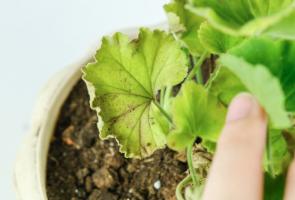Introduction
Water scarcity is a growing concern worldwide. To combat this issue, using reclaimed water for non-edible purposes has become increasingly popular. However, the use of reclaimed water for edible plants is still a controversial issue. Some argue that using reclaimed water for watering crops is a sustainable solution, while others worry about the potential risks associated with using recycled water for food production. This article explores the pros and cons of using reclaimed water for edible plants.
Advantages of Using Reclaimed Water
Using reclaimed water for watering crops has several advantages. First, it is a sustainable solution that conserves scarce water resources. Second, it helps to reduce the strain on freshwater sources, especially in regions that are facing drought. Third, it provides a reliable source of water for irrigation, as reused water is available throughout the year. Lastly, using reclaimed water can reduce the cost of water, as recycled water is often cheaper than fresh water.
Potential Risks of Using Reclaimed Water
There are also several potential risks associated with using reclaimed water for edible plants. The primary concern is the presence of pathogens and contaminants in the recycled water. These contaminants can include bacteria, viruses, and chemicals that can pose a risk to human health if ingested. Moreover, using recycled water can also lead to the buildup of salts and minerals in the soil, which can affect crop growth and yield in the long run. Furthermore, the use of recycled water can lead to the accumulation of heavy metals and other pollutants in the soil, which can contaminate the food chain.
Regulations and Guidelines
Many countries have regulations and guidelines in place governing the use of reclaimed water for food production. For example, the United States Environmental Protection Agency has set regulations and guidelines for the use of reclaimed water for crop irrigation. These regulations require that the quality of the recycled water meets certain standards to ensure that it is safe for use. Additionally, the World Health Organization has developed guidelines for the safe use of wastewater for crop irrigation. These guidelines provide a framework for managing the risks associated with using recycled water for food production.
The Bottom Line
In conclusion, using reclaimed water for edible plants has both advantages and potential risks. While recycled water is a sustainable solution that conserves water resources, it can also pose a risk to human health and the environment if not properly managed. Therefore, it is important to follow regulations and guidelines in place to ensure that the quality of the recycled water meets certain standards. Ultimately, the decision to use reclaimed water for edible plants should be made on a case-by-case basis, taking into account the local context and specific circumstances.

 how many times do yo...
how many times do yo... how many planted tre...
how many planted tre... how many pine trees ...
how many pine trees ... how many pecan trees...
how many pecan trees... how many plants comp...
how many plants comp... how many plants can ...
how many plants can ... how many plants and ...
how many plants and ... how many pepper plan...
how many pepper plan...




























